If You Have Little Kids At Home, Experts Say THIS is the #1 Dog Breed You Should Get
Having a family dog can be an influential, magical part of childhood—who doesn’t have fond memories of their childhood dog? Owning a dog can make life just that much more fun, and adventuring with your kids and your dog is just that much better. But, how do you choose the best dog for kids?
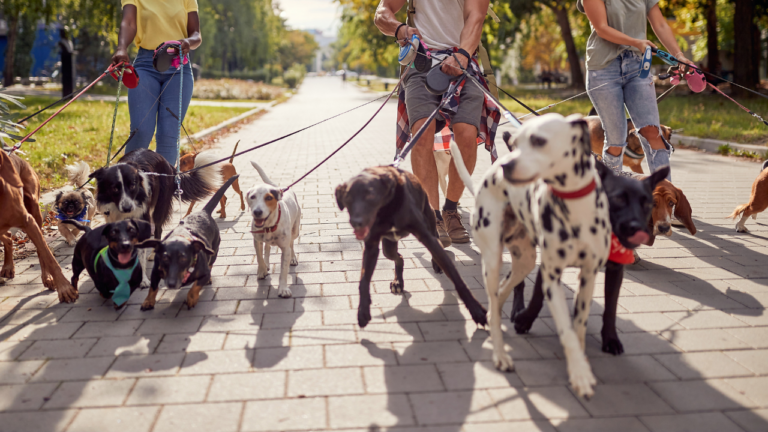
We surveyed hundreds of animal shelters nationwide and one breed was mentioned by 70% of the respondents as the best dog for families with small kids. Keep reading to the bottom to find out what this dream dog is.
Best Family Dog Breeds
These best dog breeds for kids under 12 years old have a reputation for low return rates at shelters by families with young children, showing that they successfully integrate into families. Each breed is known to be gentle, even-tempered, and generally patient with children, and does not commonly display reactive, possessive, or guarding behaviors.
However, #1 far surpassed any other dog breed as being the absolute best for families with young children.
9. Bernese Mountain Dog
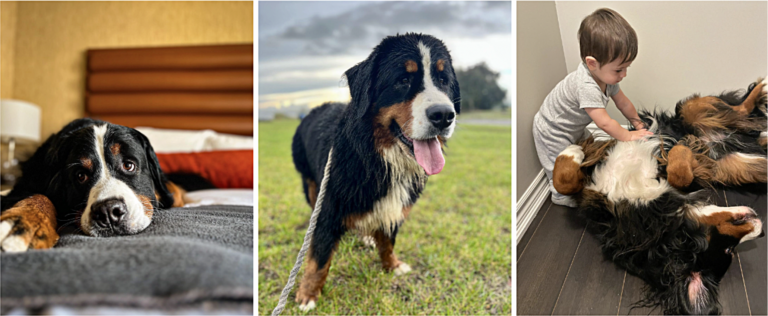
Though the Bernese Mountain Dog can sometimes be a “one-person dog” and will bond with one family member, they are known for their gentle nature with children and their patience. Be aware that some Bernese Mountain Dogs can be prone to anxiety, but ethical breeders have worked to eliminate this trait.
8. Poodle
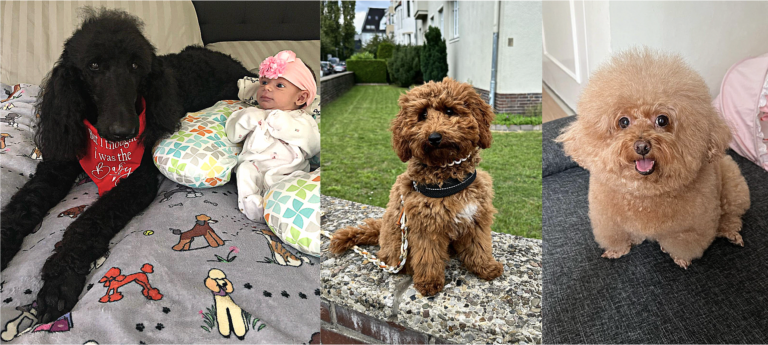
Poodles are highly intelligent and social dogs that can easily fit into a variety of lifestyles. Playful and attentive, Poodles can make wonderful companions for young kids, especially if they have been properly socialized from a young age. The most difficult part of owning a Poodle is their need for regular grooming, but if you can manage their curly coat, you’ll have a fabulous family dog.
7. Cocker Spaniel
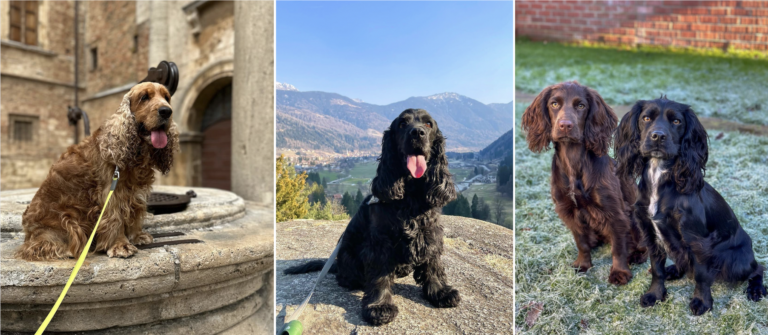
One of the most easy-going sporting breeds, the Cocker Spaniel is known for its low levels of reactivity and high levels of patience, making it a fabulous breed for families with kids or other animals. Affectionate and lively, Cocker Spaniels enjoy playing but are also happy to chill and take a nice nap!
6. Bichon Frise
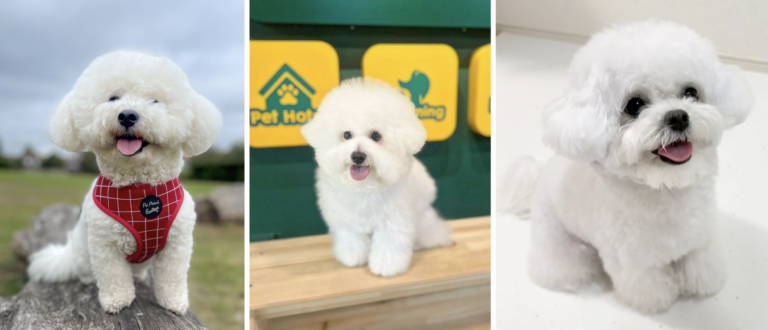
An incredibly affectionate and loving dog breed, the Bichon Frise is easily one of the best dogs for kids, the best dog breeds for seniors, or anyone looking for the perfect companion animal. Small but confident, Bichon Frises can accidentally be hurt by kids, so it’s important to teach your young ones to be respectful of their new canine best friend.
5. Boxer
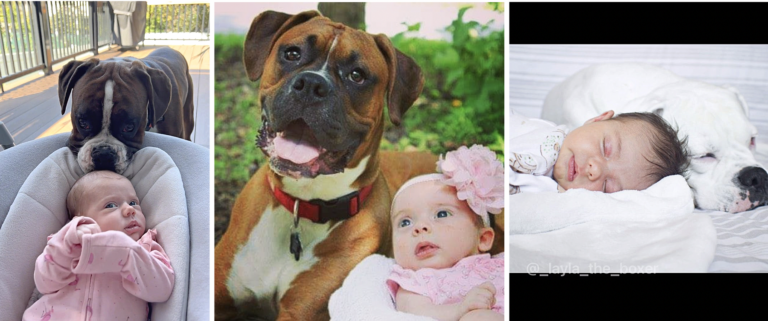
Boxers are goofy, playful, affectionate dogs with sensitive personalities that make them a great addition to family time! Boxers love to be with their humans and are very tolerant of physical play which makes them good for young children. Boxers are quite large dogs that don’t know their strength, so it’s important to work with them to teach them to be gentle with your kiddos.
4. Cavalier King Charles Spaniel
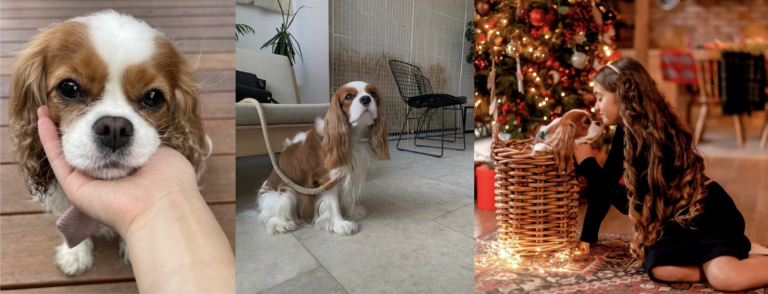
Sweet, gentle, and cheerful, Cavalier King Charles Spaniels are friendly dogs that are not only good with children but also genuinely love spending time with their humans. Quiet and even-tempered, the Cavalier is content to go with the flow as long as they are with their families.
3. Shih Tzu
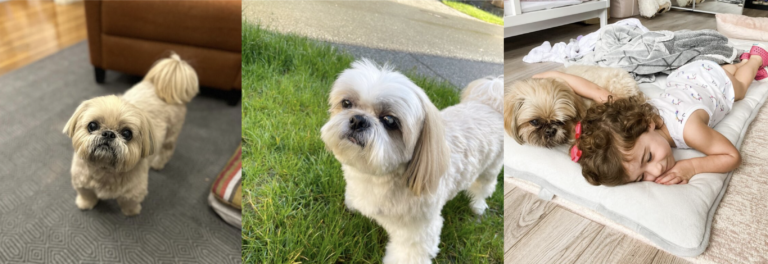
Goofy, happy, and social, Shih Tzus are cheerful little companions who enjoy lively home lives without needing very much exercise. A relatively low-maintenance breed, Shih Tzus are affectionate and playful little dogs who often love hanging out with humans of all ages.
2. Labrador Retriever
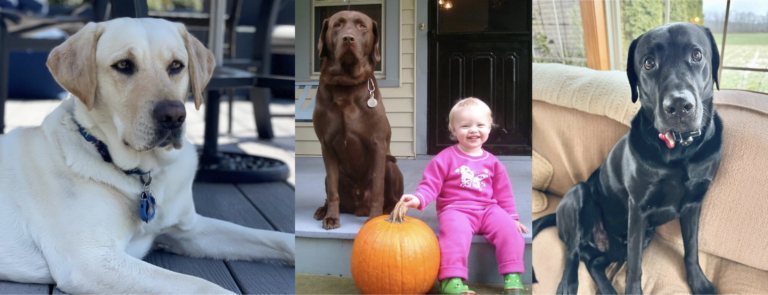
Labrador Retrievers are popular family dogs and are known for being fantastic with children! Patient and playful, Labs are wonderfully understanding of young children’s limitations and can be very aware of their physical size and strength. Labs can be high energy and may accidentally knock over or hurt young kids in their excitement—for this reason and others, always monitor your dog with your kids!
1. Golden Retriever 🥇
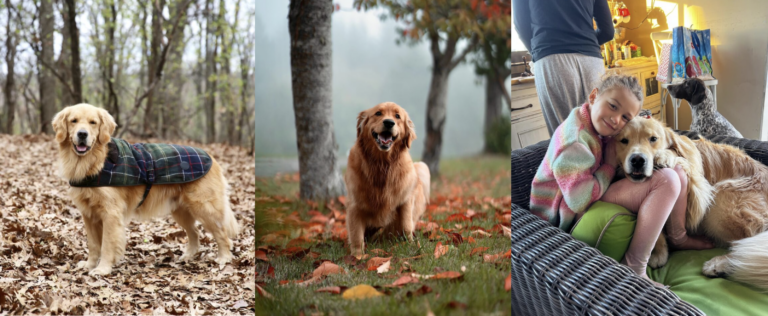
The #1 best breed for dogs is… The Golden Retriever. This breed has been one of the world’s most popular family dog breeds for decades, and for good reason! After surveying animal shelters nationwide, 70% recommended Golden Retrievers for families with kids and reported that this breed is the least commonly returned or surrendered to shelters. Retrievers easily transition into homes with young kids, thanks to their amazing personalities!
Eager to please, affectionate, gentle, playful, and patient, Golden Retrievers are enthusiastic family dogs who bond deeply with their humans. Though most Goldens are capable of being very gentle, it’s important to know that this breed can be high-energy and may require additional exercise and mental stimulation beyond playtime with your kiddos.
What To Consider When Choosing a Family Dog
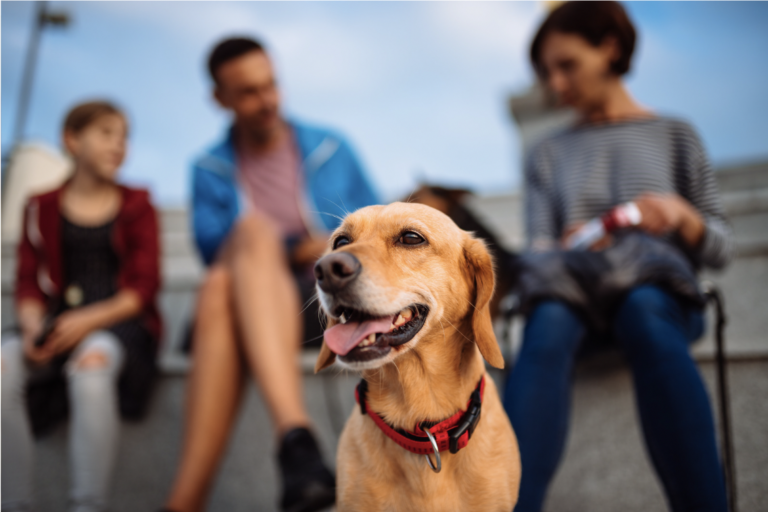
Far too many novice dog owners fall into the trap of choosing a dog for looks alone. Dogs are a lot of work, no matter the breed, but some are undeniably higher maintenance than others. Many dogs that end up in shelters and the animal rescue system are owner surrenders that were “too much work” for their humans to keep up with.
Both for the sake of your family and to avoid rehoming a dog—which can be traumatic for everyone involved—try to keep these three important factors in mind when selecting a dog breed.
Age & Personality Of Your Children
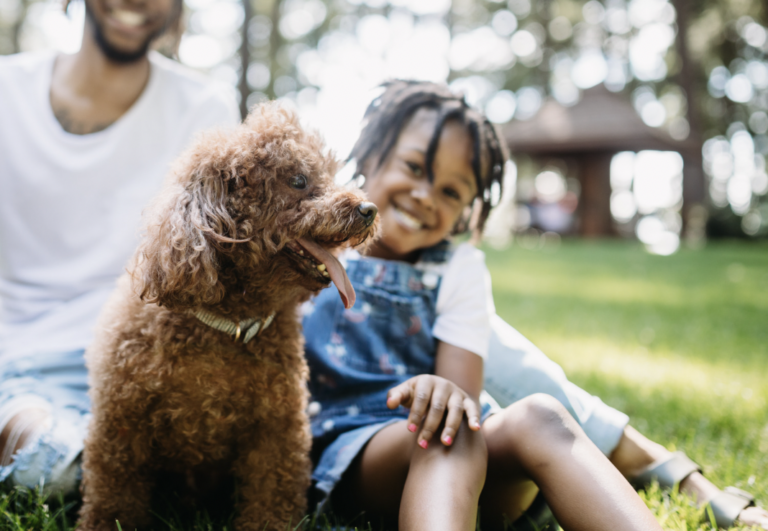
Younger children naturally have very different needs than older children and are often not developmentally ready to interact appropriately with certain dog breeds. Very young children especially do not have the impulse control to avoid accidentally hurting, scaring, or crossing a dog’s boundaries, and can easily get hurt as a result.
Similarly, some children are naturally more inclined to be gentle and respectful of animals while others may have a difficult time resisting the temptation to hug, kiss, and get into their pets’ faces. You know your child best, and it’s important to choose a dog breed that will be suitable for them and set them up for a successful relationship.
Prior Experience With Dogs
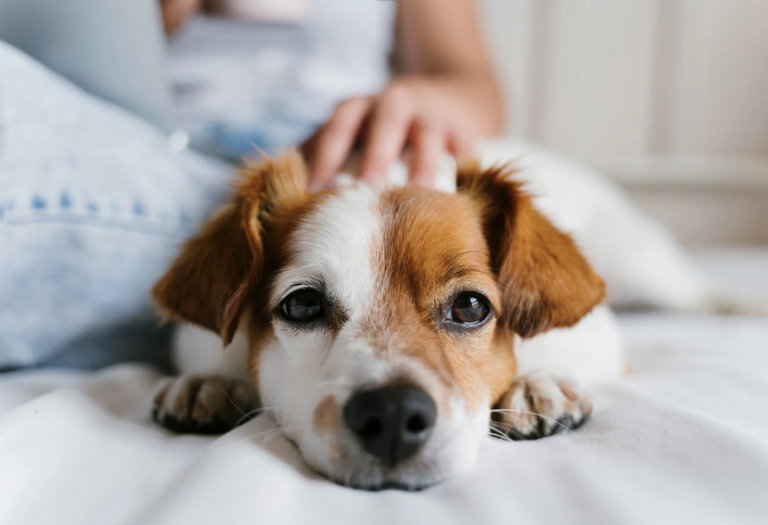
How much experience you—the parent—have with dogs will also help you decide which dog breed will fit into your family’s lifestyle. If you are new dog owners you should choose a breed that is easy to train, relatively low energy, and known to be gentle naturally. You should also avoid dog breed groups with “intense” personalities like hounds and herding breeds.
Similarly, if your kids grew up with dogs in the home, they may already have the skills to live with a slightly more “advanced” dog breed. If this will be their first dog you should choose a tolerant, even-tempered breed that can handle the learning process your children will go through.
Household Activity Level

Many dogs are rehomed because they are too active for their family’s lifestyle. You may believe you have an active family because your kids play sports and you enjoy going outside, but can you keep up with a dog who needs three hours of intensive exercise every single day?
Life as a parent can be unpredictable, and dogs with extensive exercise and mental stimulation needs don’t take days off just because your kids are sick or have events coming up. Be realistic about how much time you can actually dedicate to your dog’s care.
Dog Breeds Not Recommended for Small Children
Based on results from our nationwide survey we conducted of animal shelters around the US, these breeds are often incompatible with young children. We asked which breeds were most commonly returned to shelters by families with little kids, and the results weren’t very surprising. These breeds may be popular, but they are either high-energy, known to be independent, or considered likely to nip, bite, or be physical with children who disrespect their boundaries.
Unfortunately, for these reasons, these breeds are commonly returned to shelters and are not recommended for families with little kids. Of course, there are always exceptions to the rule! There are many examples of these dogs being great family dogs, but typically only for experienced dog owners.
Australian Cattle Dog
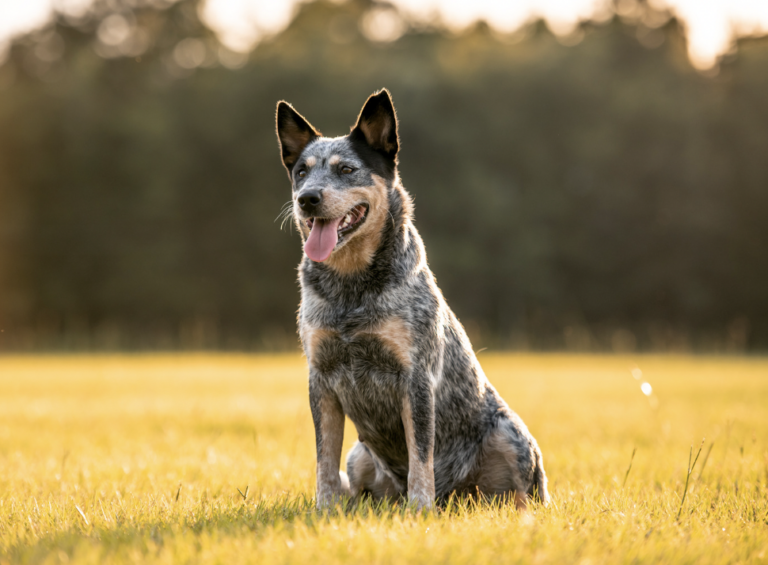
Herding breeds like the Australian Cattle Dogs are considered one of the most likely breeds to bite children. Herding dogs like to herd, obviously, and herding behavior can also include nipping and biting. Australian Cattle Dogs are often mouthy starting from a young age, and may never fully be able to inhibit this behavior. Australian Cattle Dogs also have an incredibly strong instinct to chase and correct and may become agitated by something as simple as children playing.
Chihuahua
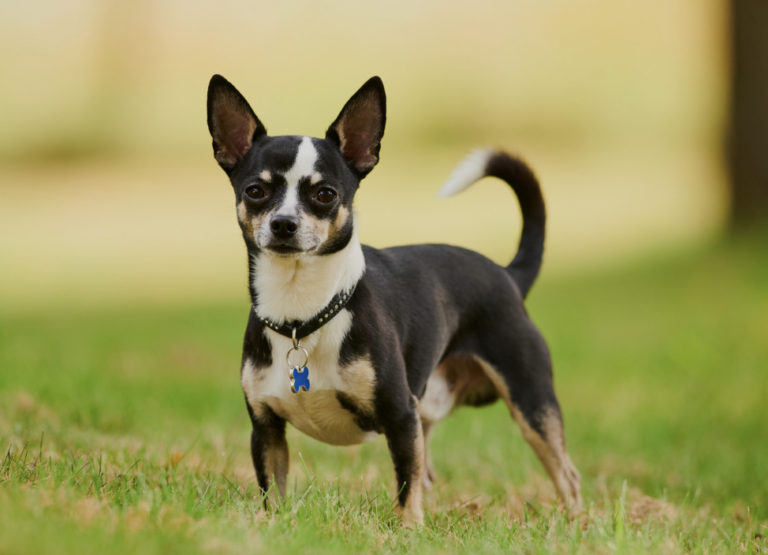
Chihuahuas make wonderful companions for adults and older children but are often not a good fit for families with young children. Chihuahuas are very small dogs and can easily accidentally be hurt by a child. Chihuahuas also often like to bond with one or two family members and may prefer to be given lots of space by other people, including children. Notorious for not liking young kids, Chihuahuas can also be reactive and have short fuses—this is not a particularly patient breed.
German Shepherd
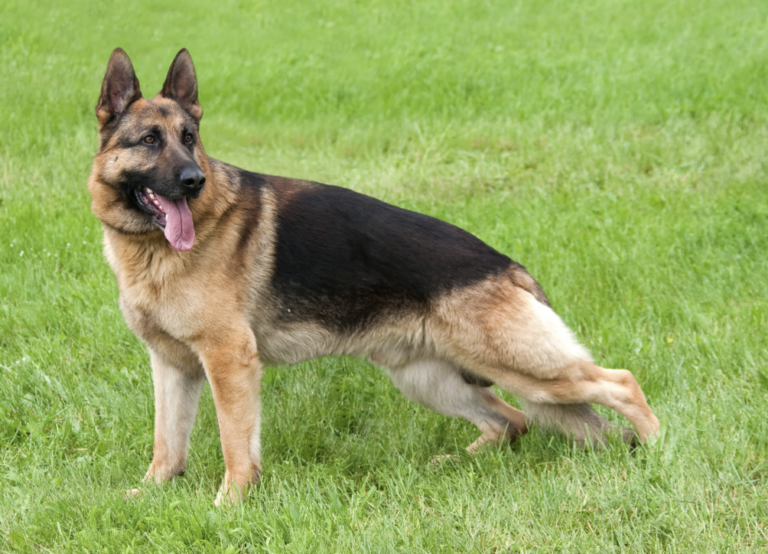
Intelligent and alert, the German Shepherd is a breed that commands respect—but little kids don’t always understand. German Shepherds enjoy firm boundaries, need owners who can dedicate the majority of their time to them, and are often happiest when they have a “job” to do. This makes them great for canine sports, agility, and training, and not so good for families with kids. Some German Shepherds can be territorial resource guarders, and may not react gently to children who cross their boundaries.
Siberian Husky
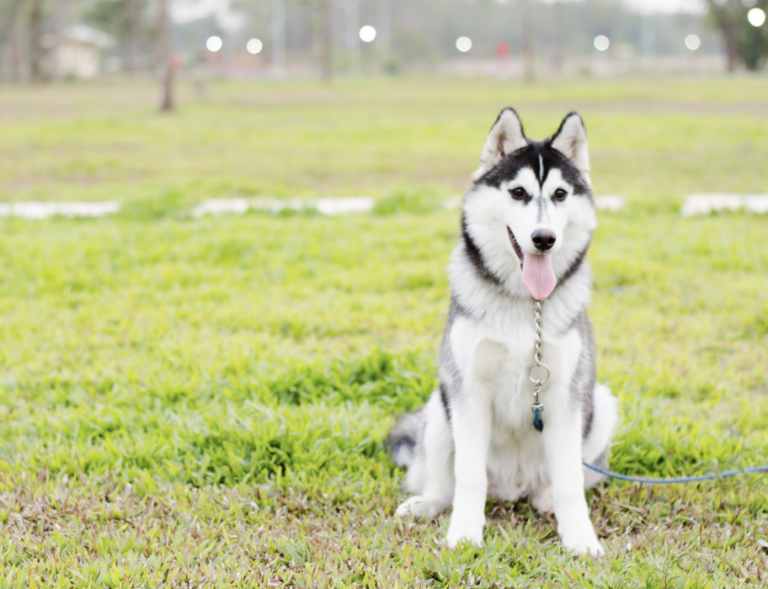
Siberian Huskies have become a popular breed primarily for their looks, but few people are truly prepared for how much energy these dogs have. Huskies need hours of exercise a day, and can easily become restless, destructive, and frustrated if they aren’t given adequate enrichment. Sometimes compared to human toddlers throwing a tantrum, bored and under-exercised Huskies are incredibly difficult to manage.
While the right dog can enrich your life and your household, the wrong dog can leave your happy family in chaos. Kids and dogs are not always a good combination, and even the friendliest, most kid-friendly breeds should always be monitored around young children. In the worst situations, dogs can inadvertently injure your children or vice versa, leaving you with the heart-wrenching choice of possibly rehoming your family pet.
One key component of your education should be learning which breeds are most successful in homes with little kids, and learning which breeds are not considered kid-friendly. Before you commit to bringing home a puppy or an adult dog, do plenty of research and learn as much as possible about raising kids and canines is important.
Related Articles:
- If You Own One of These 5 Dogs, Your Insurance Premiums Could Skyrocket. Here’s Why
- NEVER buy these 5 dogs if you’re a senior citizen, according to the experts
- 7 Overrated Dog Breeds Vets Wish Dog Owners Would Stop Buying
